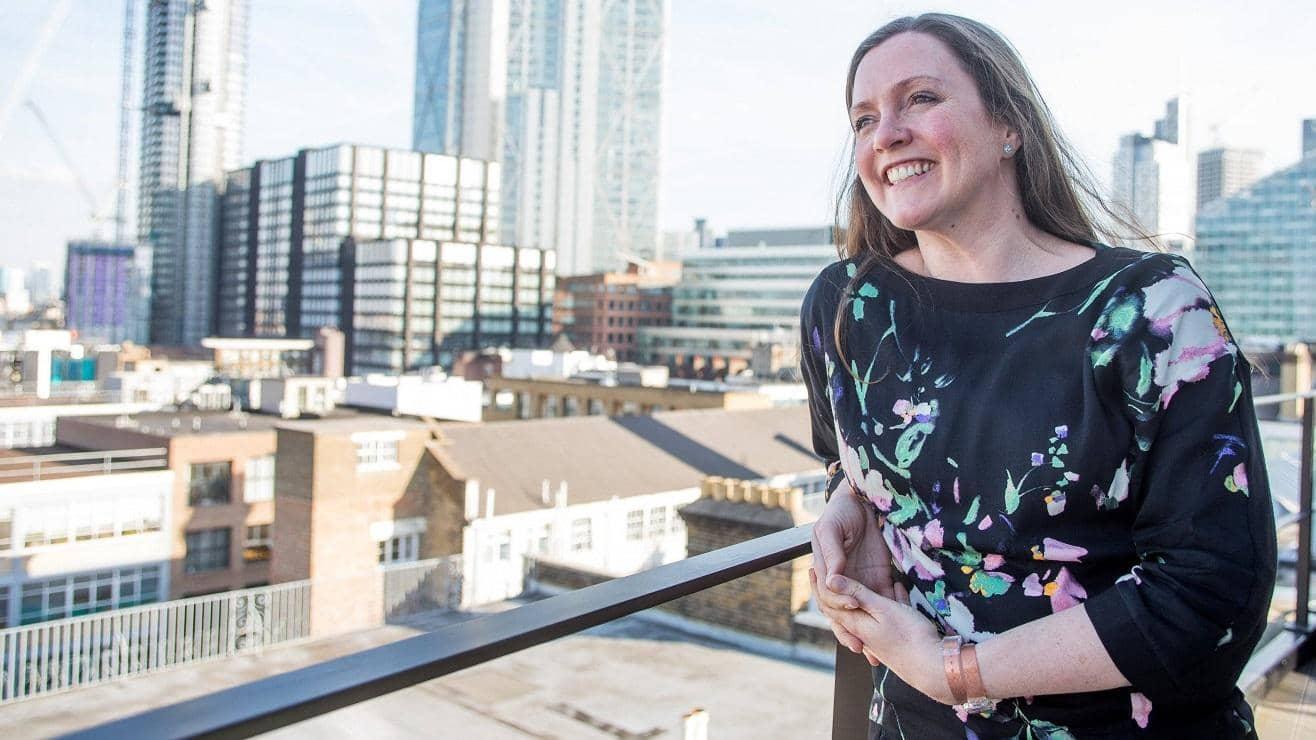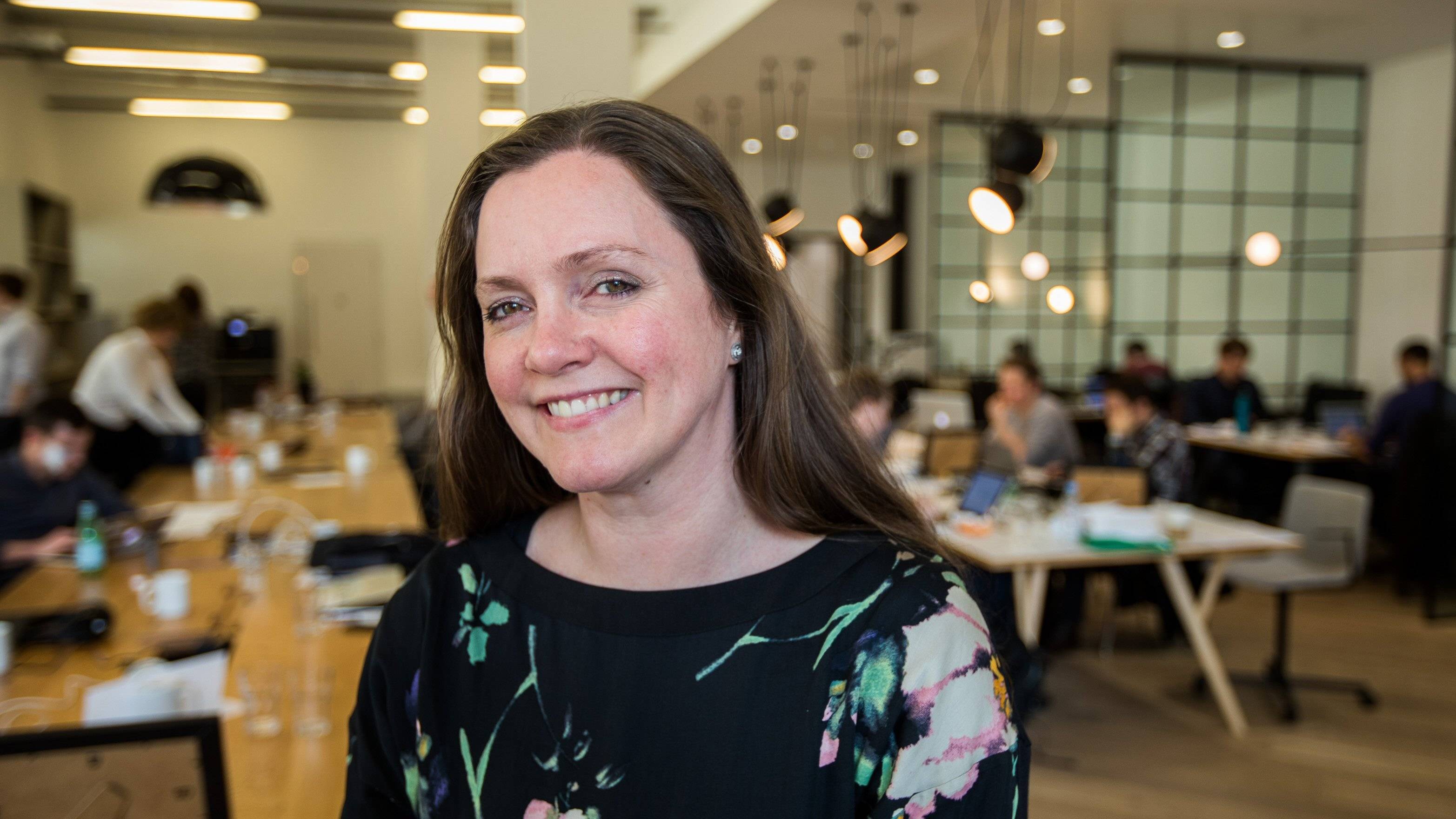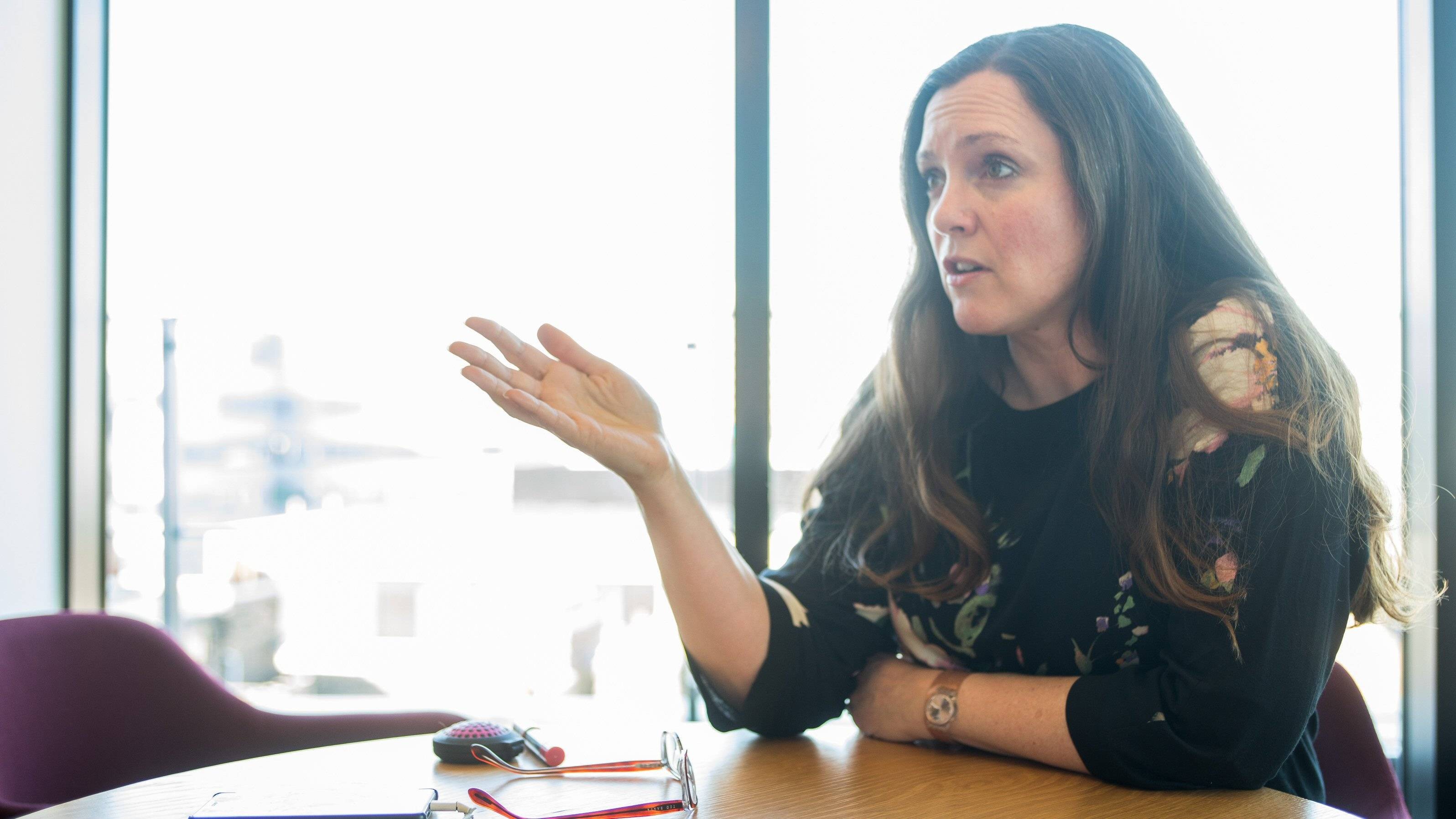
Agent of Change
“The reason I love this job,” says Kirsty Rutter, “is that I’m paid to disrupt the status quo. It’s like being in a sweet shop and working out which sweet jar to go for first. Change in a massive organisation is about behaviour, and behaviour is about culture, and culture is about people – the mistake some firms have made is thinking change is all about tech, when it’s really about the people who tech will enable.”
Rutter is MD, Chief Innovation Officer UK at Barclays, and her bridge-building role sees her shuttle between Barclays’ Shoreditch tech hub, Rise, and the Bank’s headquarters in Canary Wharf – as well as further afield to start-up centres in New York and Tel Aviv.
"I’m a matchmaker," she says. "I’m a conduit between what Barclays as a business needs and all the incredible talent and tech we have here. It sounds simple, but I have to get under the skin of what the business is trying to do and then find the tech – that has enough credibility – that we’d be happy to work with."
Part of Rutter’s remit is control of the Barclays Accelerator, powered by the Techstars programme, bringing young fintechs into Rise and matching them with specific Barclays business areas in need of new solutions: “I discovered that I loved external-facing problem solving. So that’s what I get paid to do: solve the problems and be connected with what’s going on outside."
Rutter talks with mile-a-minute enthusiasm about her role and the changes she’s making. "I wasn’t here for the first few Accelerator cohorts, but the profile of the kind of start-up you get now compared to the beginning is very different. Rise had this platform with a great connection to the ecosystem but wasn’t always connecting back into the business.
"I was going to sectors of our business asking what things they’re looking for at the front of their minds – things to fix, things to improve, and where they would take ownership of our relationships with start-ups. I had those conversations with all the business areas and they all had wish-lists and interest lists.
"So whereas in the past we had a cool portfolio of stuff and put it before the business for them to say ‘not strategically relevant’, we now had things that they wanted to get involved in, and that list helped Techstars, who know the companies on the ground, filter the suitable candidates and look for the value.
"The stats for the Accelerator are phenomenal,” adds Rutter. “We had around 7,000 companies interested in our latest cohort. We got that down to about 2,500. Then 200. Then 40. And then we go back to the business and ask them to choose a top 20. Then those 20 come and pitch to us – like a kinder version of Dragon’s Den – and then we select a top 10. And by that time, we’ve connected a start-up to someone who is guaranteed to be interested in what they have to offer.
"The challenge then becomes absorbing them into the business. That brings products that we benefit from, but the start-ups can also go and sell elsewhere and benefit their business as well as our investment. So, we win, they win, and we win again."

Navigation speed
Rutter began her career at Barclays in 2003, spending a decade with the Bank in finance and strategy roles, before moving on to a new career in risk.
Returning to Barclays in June 2017, Rutter says that her previous experience of the organisation was vital: "I was at Barclays for 10 years, and then left, and then came back in a completely different role. I get the sense that I wouldn’t be as effective if I hadn’t been here in an ‘earlier life’. I need access to all the people who are making the decisions and control the budgets, and many of them were my peers when I left. It speeds up my ability to navigate through the organisation."
She considers the changes: "With finance, with strategy, with tech, with risk: every element of my career has been about problem-solving, picking up new skills, and understanding all the angles of an organisation’s working.
"My career path has been a zigzag of picking up different tools for my toolkit and getting different angles on how to solve problems. That patchwork career might have made me stick out, but after 25 years I think I’ve finally found my place and my time – where everything has all come together for someone whose profile hasn’t been straight up the ladder."
That patchwork career and its many vantage points – as well as an immersion in both start-up and corporate life – gives Rutter a perspective on what she calls the “super-tanker” bank needs to do in a sea teaming with “speedboat” start-ups. “It’s a mindset”, she says, “we have a whole heap of historical structures and organisational hierarchies that are hard to change.
"I have a team of three, a non-hierarchical team who all do the same amount of work – I’ve got the more senior title because I’m the most experienced, but it doesn’t mean I’m the best – and that’s the behaviour that you see in start-ups, but you don’t see so much in legacy banks.
"I think that behaviour has to change," she adds, "and that’s hard, because it’d be us doing it to ourselves. If you want hard core cultural change, there’s not one silver bullet, you have to make incremental changes with years of pushing the same agenda. And gradually people begin to realise that it’s real, it’s not going away – and if we don’t move faster on this then our business gets overtaken.
"I don’t think there’s a magic answer here, but I do think that what I’m trying to do, and Ashok Vaswani and the management team are trying to do, is change the way we behave but recognise that we ourselves are part of the problem. When it’s personal, it’s very hard."

Change play
In some ways, Rutter thinks the “cultural change play” of dealing with start-ups is as important as the investment play or the specific technologies the start-ups offer: “We learn from the ways that the start-ups behave. And the tech trends don’t matter as much as execution, partnership and collaboration matter.
"What matters is an acknowledgement that we need to stop being smug or self-righteous in thinking we can do everything ourselves because we have scale. In the last nine months I’ve seen that attitude soften, because the speed of change in the market is only getting faster.
"Our history won’t save us from pace of change – there was a time when big banks would have conversations with tech companies and say: ‘We’re not sure, we can probably do it better ourselves.’ But some of those firms are now billion-dollar companies. That has made enough impact for people to realise that for us to be successful we need to partner."
Rutter says that the cultural change involves looking outside the “glass wall” and into the fintech ecosystem: "For us to be successful at any reasonable pace we have to do it in a different way to how we’ve done it in the past. It means not always building ourselves but partnering, collaborating and buying solutions. That can seem counter-intuitive to people whose career has been based on us building things ourselves and then hiding it behind the glass wall."
With Rutter rejoining Barclays and the recent recruitment of John Stecher to head up the entire Group Innovation function, she says the team is operating as "a very early-stage start-up."
"We need another 12 to 18 months of bedding it down, and then we get the next stage of evolution. I’ve been an agent of change throughout my career: I’m never happy with the status quo. People will carry out the change if you give them enough tools to do that, but there has to be enough evidence to show we’re serious, we’re not going away, and if I hammer on the door enough you’ll realise that this isn’t going away. And I’m much more fun to work with in the room than have hammering on the door."